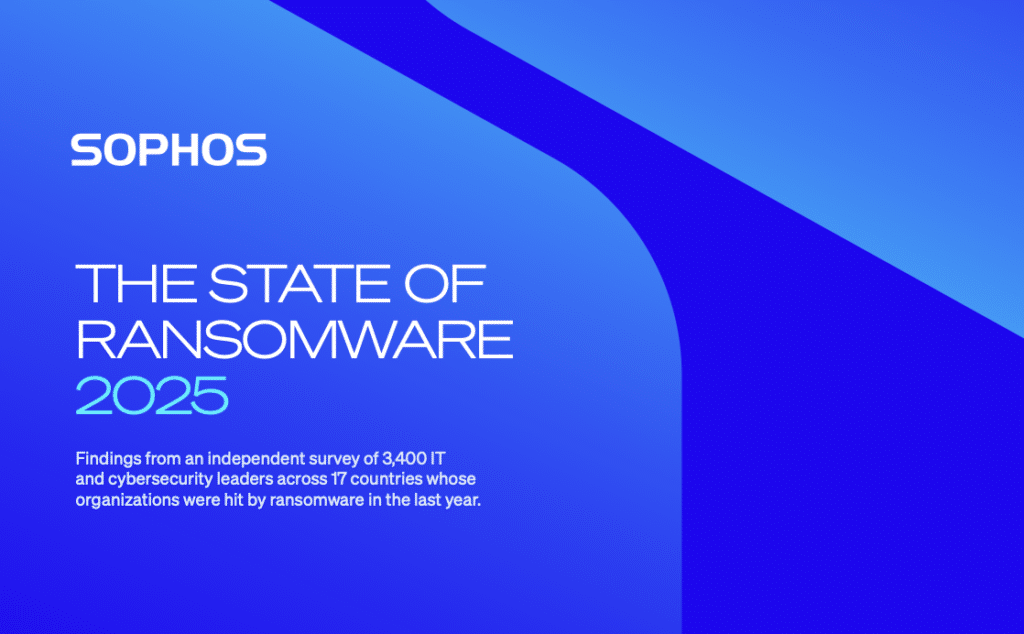Why Businesses Should Invest in ESG: Lessons learned by Espria

In today’s competitive landscape, Environmental, Social and Governance (ESG) performance is no longer just a “nice to have”—it is a critical business imperative. Companies that prioritise ESG are better positioned for long-term success, risk mitigation, and reputation enhancement. Today’s world demands more from companies than just financial performance. Customers want transparency. Employees want purpose. Investors want resilience. ESG helps businesses manage risk, seize new opportunities and build trust with the people who matter most. It is how you can stay competitive, stay responsible and stay relevant in a fast-changing world.
A powerful case study of the value of ESG investment is our own. But at Espria, ESG is more than just a framework. It is about making thoughtful choices that positively impact people, communities and the planet. Our commitment to ESG has delivered remarkable improvements across all key areas.
Since our first ESG assessment in July 2022, our total ESG score has risen to 71% in January 2025—a clear testament to the tangible benefits of a structured, strategic ESG focus.
We are proud of how far we have come—but we are even more excited about where we are going. With a clear roadmap and strong values guiding us, we are on track to reach an 88% overall ESG score by the end of 2025, putting Espria in Sustainable Advantage’s top “Leading” category*.
Because at the end of the day, this is not just about numbers or rankings—it is about creating a better business, a better community and a better future.
Environmental Progress: From 8% to 76% and Rising
Our environmental performance tells a compelling story. From a modest score in 2022, we have surged to 76% by January 2025. How? By securing green energy contracts for our two controlled offices, accurately calculating Scopes 1, 2, and partial Scope 3 emissions, and embedding sustainability into our operations. Looking ahead, we have set our sights on an 87% environmental score by the end of 2025.
By strengthening landlord engagement, calculating comprehensive Scope 3 emissions and developing a carbon reduction glide path with clear annual milestones, we are demonstrating that environmental responsibility drives operational efficiency and helps to future-proof the business.
Social Responsibility: Building an Inclusive Future
Similarly impressive is our social performance, which climbed from 22% in 2022 to 71% at the start of 2025. This improvement is rooted in a focused drive towards diversity, equity and inclusion (DE&I). To continue this momentum—and achieve a 92% social score by December 2025—Espria plans to capture deeper employee demographic insights, identify and address any workplace inequalities, and roll out targeted DE&I initiatives.
Introducing leadership training to mitigate unconscious bias and establishing a dedicated Wellbeing Policy will further enhance workplace culture, retention and employee satisfaction—critical drivers of business success.
Supply Chain Accountability: Raising the Bar
Supply chain transparency is another area where we have made strong progress. Our supply chain score has now reached 56% (as awarded by Sustainable Advantage) but we are targeted to reach 84% by the end of 2025; to achieve this we are working to align every supplier with our Code of Conduct as well as strengthening traceability and risk assessment processes.
Building ethical and sustainable supply chains is not just about corporate responsibility—it’s about ensuring operational resilience, reducing reputational risks, and meeting increasing stakeholder expectations.
Governance Excellence: Building Trust
Robust governance underpins sustainable success. The governance score achieved by Espria has seen a remarkable jump to 79%. Planned next steps—such as reviewing and updating our Corporate Criminal Offence Policy and Modern Slavery Statement and strengthening board diversity—will further consolidate our progress towards a 90% governance target.
Embedding comprehensive ESG risks into the company’s Risk Management Framework and enhancing transparency through Section 172 reporting not only protects the business but will also earn greater trust from investors, employees and customers.
ESG Integration: Making ESG Part of Business DNA
True ESG leadership means embedding ESG across all aspects of the business. Espria has raised its ESG integration score from a mere 10% to 58%. With plans to develop an ESG Impact Report and conduct a stakeholder Materiality Assessment, Espria is poised to reach a 78% integration target.
Fully integrated ESG practices translate into stronger strategic decision-making, enhanced reputation and better financial outcomes.
Conclusion: ESG Investment is Business Investment
Our journey shows that investing in ESG is not just about ticking boxes. It is about building a business that is resilient, responsible and ready for the future. By implementing the initiatives outlined—across environmental stewardship, social responsibility, governance and supply chain integrity—Espria is on track to achieve an 88% total ESG score, earning a place in the coveted “Leading” category.
Businesses that make ESG a strategic priority today will be the ones that thrive tomorrow.
Is your business ready to invest in a sustainable future?
* The Sustainable Advantage ESG scoring framework is actions based and thematically aligned with major ESG frameworks including the UNSDGs, GRI and SASB. The award is based on the overall score. At the time of writing, Espria are assessed as Excellent, if we achieve above 80% next year we will be in the leading category. There are 5 categories – Emerging, Progressing, Established, Excellent and Leading.
You may be interested in
Is Your MSP Really Helping You Grow — Or Just Keeping the Lights On?
There’s a moment in every business where the question quietly surfaces: “Are we getting what we really need from our IT provider?” It’s not always easy to answer. On the surface, things seem fine. Tickets are resolved. Reports arrive. There’s someone to call when things go wrong. It’s familiar. It’s comfortable. And that comfort can be deceiving. Because beneath the surface, many organisations are stuck in a service relationship that feels safe — but is actually stagnant. And here’s the truth: comfort isn’t the same as progress. For many, the idea of changing MSPs or challenging the…
The 2025 State of Ransomware: Key Insights on Attacks, Costs, and Recovery
Ransomware continues to evolve — and so must our defenses. The State of Ransomware 2025 report from Sophos presents one of the most comprehensive views yet into how organisations around the world are being impacted by ransomware attacks. Based on an independent survey of 3,400 IT and cybersecurity leaders across 17 countries, the report explores how attacks are evolving, the operational weaknesses adversaries exploit, and the human and financial tolls that follow. Whether you’re building a cybersecurity strategy or assessing risk, this year’s findings offer crucial, real-world insights to guide your response. Key Findings from…
Outgrowing your MSP; businesses need a provider that scales with their growth
To stay competitive, business leaders must align with MSPs that deliver strategic value, drive innovation, and support to scale. Now firmly into 2025, it’s becoming clear what the year has in store for the IT landscape. For SMBs, the message is clear: business growth must be matched with smarter, more scalable managed services. The demand for cyber-resilient, cloud-first and AI-integrated solutions is no longer a forecast – it’s a reality already shaping business priorities. According to leading global technology market analyst firm Canalys’ MSP Trends 2025 report, the MSP model is transforming under growing pressure…
End of windows 10 support signal urgent action needed from UK organisations as cyberattacks continue to rise
Recent breaches at major UK retailers, combined with the approaching end of life of Windows 10, highlights a critical moment for IT resilience planning The recent wave of cyberattacks targeting major UK retailers has highlighted the growing security risks associated with organisations running outdated systems and applications and maintaining weak identity verification protocols. These incidents—particularly those involving Marks & Spencer and the Co-Op—have starkly exposed how vulnerable legacy infrastructure and insufficient access controls can be. In both cases, attackers successfully posed as legitimate employees and manipulated IT help desks into resetting internal passwords, ultimately gaining…
UK SMEs must fortify their cybersecurity against geopolitical risks, says Espria
A recent Sky News investigation highlighted an uptick in cyberattacks tied to the Iran conflict that are targeting businesses across multiple sectors. Speaking at the NATO Summit, Prime Minister Sir Keir Starmer urged UK businesses, regardless of size or sector, to prioritise cybersecurity and ‘take immediate steps to review and strengthen their defences.’ While the warning is timely in tone, businesses are already becoming targets of politically motivated cyberattacks, emphasising the need for heightened vigilance. “As tensions spread globally, threat actors will continue to exploit digital vulnerabilities, and neutral businesses may be caught in the…
The Importance of Compliance and Security: Complementary Forces in Today’s Business World
In today’s rapidly evolving business landscape, compliance and security have become paramount. These two elements, often perceived as hurdles, are in fact complementary forces that drive business success and sustainability. Understanding their importance and how they work together can transform them from perceived blockers into enablers of growth and innovation. The Role of Compliance Compliance refers to adhering to laws, regulations, standards and ethical practices relevant to an industry. It ensures that a company operates within the legal framework and maintains its reputation. Compliance is not just about avoiding fines and legal issues; it is…





